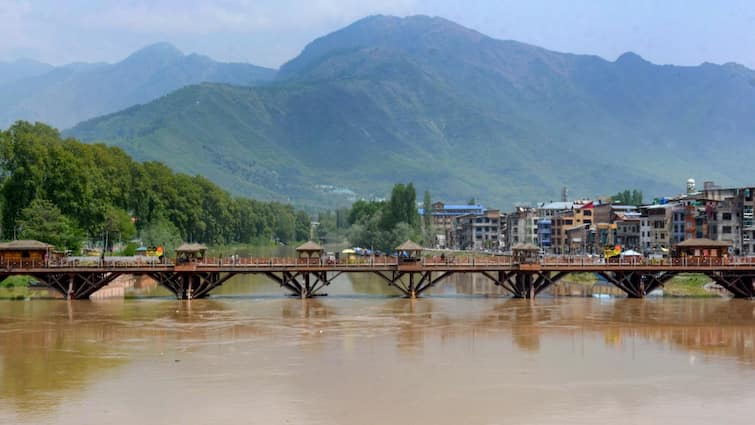Taliban-ruled Afghanistan has announced plans to construct dams and restrict the flow of river water to Pakistan, the Afghan Information Ministry said on Thursday. The directive to expedite dam construction on the River Kunar was issued by Taliban Supreme Leader Mawlawi Hibatullah Akhundzada, underscoring the regime’s growing emphasis on asserting control over transboundary water resources.
According to the ministry, Akhundzada instructed the Ministry of Water and Energy to commence work on the project immediately and sign contracts with domestic firms. “The Supreme Leader has ordered the ministry to sign contracts with Afghan companies rather than wait for foreign firms,” Deputy Information Minister Muhajer Farahi posted on X.
Move Comes After India Suspended Water-Sharing With Pakistan
Afghanistan’s decision mirrors India’s recent move to suspend the Indus Waters Treaty after Pakistan-backed terrorists killed 26 civilians in Pahalgam on April 22. The treaty had allowed Pakistan access to water from three western rivers — the Indus, Jhelum, and Chenab.
London-based Afghan journalist Sami Yousafzai wrote on X, “After India, it may now be Afghanistan’s turn to restrict Pakistan’s water supply,” adding that the Taliban’s order underscores a broader regional assertion over water rights.
Strategic Importance Of The Kunar and Kabul Rivers
The 480-km-long Kunar River originates in the Hindu Kush mountains near the Broghil Pass, close to the Pakistan border. It flows southward through Afghanistan’s Kunar and Nangarhar provinces before entering Pakistan’s Khyber Pakhtunkhwa, where it joins the Kabul River near Jalalabad. Known as the Chitral River in Pakistan, it plays a vital role in feeding the Kabul River, which in turn merges with the Indus near Attock.
Any reduction in Kunar’s flow would therefore have a cascading impact on the Indus River system, threatening irrigation and water supply in Pakistan’s Khyber Pakhtunkhwa and Punjab provinces.
Tensions Along The Durand Line
The Taliban’s move comes weeks after deadly clashes along the Durand Line, which is the de facto border between Afghanistan and Pakistan, is not recognized by Kabul. Drawn during the colonial era, the Durand Line split the Pashtun heartland between the two nations and remains a major source of tension.
Since returning to power in 2021, the Taliban has prioritised water sovereignty as a cornerstone of national policy. It has accelerated dam-building and hydropower initiatives to harness domestic river systems for irrigation, electricity generation, and reduced reliance on neighbouring countries.
Pakistan and Afghanistan, however, lack a formal water-sharing agreement. Islamabad has repeatedly warned that Kabul’s unilateral steps could heighten regional instability and exacerbate Pakistan’s ongoing food and energy crises.
India-Afghanistan Strengthen Hydropower Cooperation
Afghanistan’s decision comes shortly after Taliban Foreign Minister Mawlawi Amir Khan Muttaqi’s visit to India, where he met External Affairs Minister S. Jaishankar. Both sides reaffirmed their commitment to hydropower cooperation.
“Appreciating India’s assistance in the construction and maintenance of the India-Afghanistan Friendship Dam (Salma Dam) in Herat, both sides also underscored the importance of sustainable water management,” the joint statement read. They agreed to collaborate on hydroelectric projects to support Afghanistan’s energy and agricultural needs.
Legacy Of India-Afghanistan Water Projects
India’s long-standing partnership with Afghanistan in the water and energy sectors includes the Salma Dam, completed in 2016 with $300 million in Indian funding. The project generates 42 MW of power and irrigates 75,000 hectares, significantly cutting Afghanistan’s dependence on imported electricity.
In 2021, both nations signed an MoU for the Shahtoot Dam on the Maidan River — a tributary of the Kabul River — with India committing $250 million to store 147 million cubic metres of water. The dam aims to provide clean water to over two million Kabul residents and irrigate 4,000 hectares of farmland.



